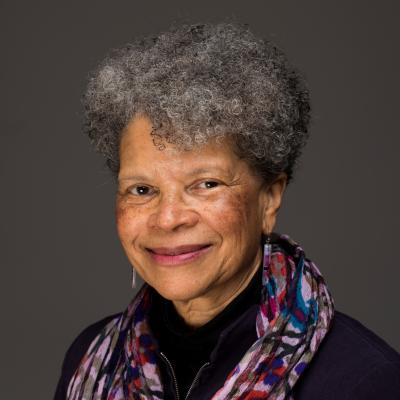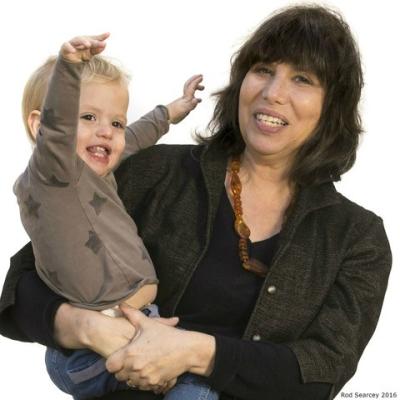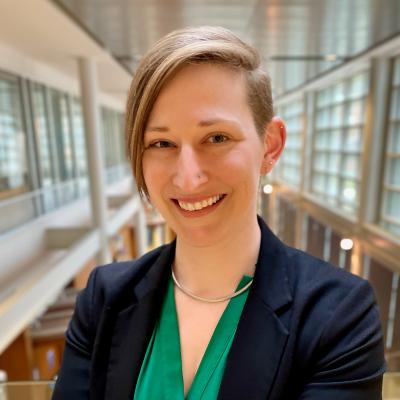2023 SRCD Biennial Awardees
SRCD is pleased to announce the recipients of the 2023 SRCD Biennial Awards! Join us in congratulating the distinguished awardees at the SRCD Member Meeting and Awards Ceremony, Thursday, March 23, beginning at 6:45 pm MDT.
Distinguished Contributions Awards
The SRCD Senior Awards Committee, chaired by Governing Council member Gustavo Carlo, selected six Distinguished Award recipients. The recipients of each of these prestigious awards are as follows:
Distinguished Contributions to the Interdisciplinary Understanding of Child Development Award

Laurie E. Cutting, Vanderbilt University
For forging ties across disciplinary boundaries and scientific advancements in reading, executive function, and mathematics, particularly in individuals with genetic and developmental disabilities.
For her use of cutting-edge methodology including large-scale longitudinal, interventional, cross-sectional, meta-analytical and genetics approaches to improve our understanding of developmental neurocognitive processes.
For her service to the discipline and for translating cognitive developmental neuroscience to the public.
Distinguished Contributions to Understanding International, Cultural, and Contextual Diversity in Child Development Award

Ellen E. Pinderhughes, Tufts University
For her outstanding scientific contributions at the intersection of race, culture, and family context in national and international settings.
For advancing our understanding of family behaviors in context, with particular attention to poverty, access to services, and social support networks.
For her leadership in organizing and facilitating opportunities for diverse scholars to share their work to further our understanding of international, cultural, and contextual diversity in child development.
Distinguished Contributions to Public Policy and Practice in Child Development Award

Hirokazu Yoshikawa, New York University Steinhardt
For his cutting-edge, theoretically informed, and methodological rigorous understanding of policy implications on infants’, children’s, and adolescents’ developmental processes.
For his expansive program of research that attends to the environmental conditions that jeopardize children’s development.
For policies, advocacy, interventions, and practices that aid in mitigating and alleviating risk and promoting healthy development for populations around the world.
Distinguished Scientific Contributions to Child Development Award

Alison Gopnik, University of California at Berkeley
For her recognized leadership in advancing basic developmental science and how children learn about their world.
For her innovative and cutting-edge methodologies in furthering our understanding of children’s sociocognitive development.
For her science advocacy and translational efforts to disseminate developmental science to the public.
Distinguished Scientific Contributions to Child Development Award

Charles A. Nelson, Harvard Medical School
For his pioneering work and contributions on early adversity and child development that has significantly transformed our views on brain and neurological processes.
For leadership in organizing major interdisciplinary research and interventions that have advanced developmental science.
For his translational policy and applied programs aimed at addressing the needs of diverse vulnerable populations.
Distinguished Contributions to Mentoring of Developmental Scientists

Pamela Marie Cole, Penn State University
For her lifelong commitment and impact to train and guide young developmental scholars.
For her ability to integrate caring mentoring practices and rigorous scientific training.
For her success at mentoring numerous, diverse clinical and developmental scientists who are transforming and advancing developmental science.
Early Career Research Contributions Awards
Five scholars, selected by the SRCD Early Career Award Committee, chaired by Governing Council member Velma McBride Murry, will be recipients of this prestigious award, which is accompanied by an honorarium of $1,000 USD. The following five award recipients have strongly distinguished themselves as researchers and scholars, as evidenced through research, publications, and scholarly activities:

Maria M. Arredondo, University of Texas at Austin
For her innovative research on the effects of multilingual and socio-culturally diverse experiences on children’s emerging language, cognition, and brain development.
For the promise of her research to inform and advance theoretical perspectives to explain the diversity and heterogeneity of human experience and its effects on children’s mind and brain development.

Laura Elenbaas, Purdue University
For her research contributions on developmental perspectives on the significance of social inequalities, socioeconomic biases, fairness, social justice, and intergroup attitudes on children’s development.
For her commitment to disseminating research and bringing national attention to the need to consider how race is salient in resource allocation that perpetuates inequities, and also the urgency of recruiting a wider demographic population into the field of psychological science to address disparities and inequities.

Ursula Moffitt, Wheaton College Massachusetts
For her research on the role of politics in identity development, using multi-methods design studies to address critical questions about racial-ethnic identity development and intersectionality, and in the promotion of equitable developmental outcomes of youth across cultural contexts.
For her thoughtful commitment to engage in research that holds promise to facilitate radical change in developmental psychology.

Santiago Morales, University of Southern California
For his research on understanding the mechanisms underlying the normative development of emotionality and emotion regulation to inform risk for internalizing and externalizing psychopathology.
For his creativity and innovative methodological approaches to gain deeper insight into mechanisms and functions of development from infancy through adolescence, using EEG-based measures and cutting edge analytic approaches.

Rachel R. Romeo, University of Maryland, College Park
For her path breaking line of research demonstrating the link between linguistic experiences in early life with the development of language abilities and the underlying neural networks that support language in the brain.
For the advancement of her research to inform the design of a family-based intervention to test its efficacy to increase reciprocal language between caregivers and children and, in turn, produce improvements in neurocognitive outcomes in children.
Outstanding Doctoral Dissertation Awards
The SRCD Outstanding Dissertation Award Committee, chaired by Governing Council member Stephen Russell, selected five scholars for this prestigious award, which is accompanied by a $500 USD honorarium. Selection was based on criteria that included the quality of the dissertation, publications emerging from the project, and the nominee’s current position and engagement in the field of child development research:

Lior Abramson, Columbia University
For her genetically-sensitive longitudinal study focusing on the critical periods of infancy and early adolescence, and a life-span meta-analysis, which have contributed to a comprehensive understanding of empathy as part of developing personality.

Meg D. Bishop, University of Maryland, College Park
For their dissertation which advances theoretical and empirical understanding of sexual identity development that is sensitive to cohort, gendered, and racialized experiences of sexual minority people.

Pearl Han Li, Duke University
For her developmental and philosophical analysis and review which constitutes the first cross-cultural investigation of how children balance independent thinking and reliance on testimony, and for analyzing how cultural mechanisms may contribute to children’s moral agency.

Trinh Nguyen, Italian Institute of Technology in Rome
For integrating classic attachment theory with predictive processing, a major recent theoretical framework in cognitive neuroscience, and applying cutting-edge neuroscience to uncover the neural dynamics of early caregiver-child interactions.

Alyssa R. Palmer, University of Minnesota
For her innovative and methodologically rigorous dissertation which elucidates processes of risk and resilience in children exposed to the cumulative adversities that accompany homelessness, poverty, marginalization, and violence.